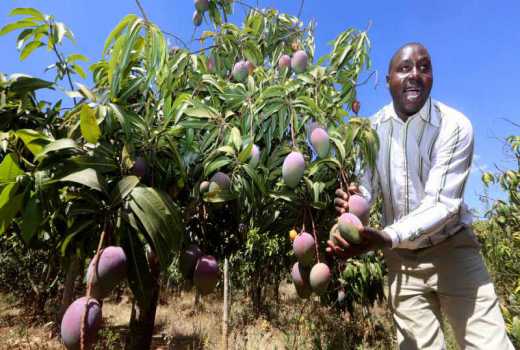×
The Standard e-Paper
Kenya’s Boldest Voice

A leisurely walk in this orchard is soothing. Here, farmers relax on well-furnished traditional huts as they enjoy a cool breeze amid a canopy of trees.
Finger licking fruits of different types hung loosely on various trees, beckoning visitors ‘eat me, eat me.’ On this day, the farm is flooded with local visiting farmers and international tourists who have come to see this marvel of a farm.